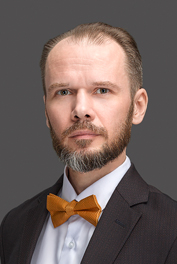Please note that the content below is more than three years old. Contact the author for an update.
How to prove the affiliation of the Court?
INTELLECT-S Defends Municipal Enterprise against Biased Arbitration Award
The municipally MUP Rezh Heating Network Regeneration Company ("MUP"), which supplies heating and hot water for Rezh, a town in the Urals, rented boiler plants and the town heating networks from Communal Technologies ("CT") which it itself rented from the town.
CT had to sublease the property, plants and equipment to MUP because CT happened to be unable to for pay for natural gas burned in the boiler plants in the middle of a winter heating season.
In view of the emergency, MUP, which specializes in solving communal and social rather than business or economic tasks, entered into the sublease urgently, without due diligence. CT had slipped into the lease a few unfavorable terms, in particular, a provision mandating arbitration conducted by a tribunal formed by Ural Financial Society ("UFS") or an its arbitrator.
Subsequently, CT resorted to arbitration seeking to collect arrears of rent which have built up over a short period. MUP had withheld rent and opposed collection over the defects in the rented properties, but the sole arbitrator appointed by UFS, did not accept those grounds which any commercial court would accept, and awarded the case to the claimant (CT) which applied to the Sverdlovsk Region Commercial Court for its enforcement.
Our comment:
That was where INTELLECT-S stepped in. As we assessed the situation, we took a close look at the grounds on which the arbitrator disregarded MUP's defenses, and found out that both the arbitrator and the sole member of the arbitration court's parent company, UFS, had represented the claimant, i.e. CT, in courts before. Although the affiliation was indirect and not readily ascertainable, we demonstrated in court the entire chain of connections and conflict of interests, and showed that neither the arbitrator nor the UFS's own arbitration court were qualified to resolve disputes to which CT was a party.
The court accepted out arguments and refused enforcement, while CT decided not to enforce other awards entered by the arbitrator. The unresolved disputes between MUP and CT are currently pending in the independent official commercial courts.
This local case was heard by the trial court at the same time as several arbitration award enforcement cases on certiorari in the Russian Federation Higher Commercial Court, and ours was the first case where the holdings of the HCC opinion were applied by a lower court. We used as authority an official video record of the HCC Presidium's hearing, because the formal opinion was not yet available in writing. The judge admitted the video as an appropriate citation.
Although the HCC had addressed and answered the key questions of law, the case had two distinctive features. One was the arbitrator's very indirect, non-obvious affiliation with the opposing party. Both the arbitrator and the sole member of the arbitration court's parent company, UFS, represented in court an entity that was 70% owned by another company whose sole member was also the sole member of the plaintiff. We discovered the affiliation only in the fourth round of our conflict check investigation of the parties' relationships. We drew for the client a block diagram showing the chain of connections and affiliations between the plaintiff and the arbitrator (attached).
Secondly, during the enforcement procedure, INTELLECT-S obtained not only the court's refusal to enforce the award, but also a ruling that any award of the UFS pocket arbitration court in any subsequent arbitration with the complainant as a party would be contrary to the principles of fair unprejudiced proceedings, and thus effectively protected our client against the lessor's further claims.
The case was carried out by Alexander Latyev, Head of practice, PhD, INTELLECT-S.









